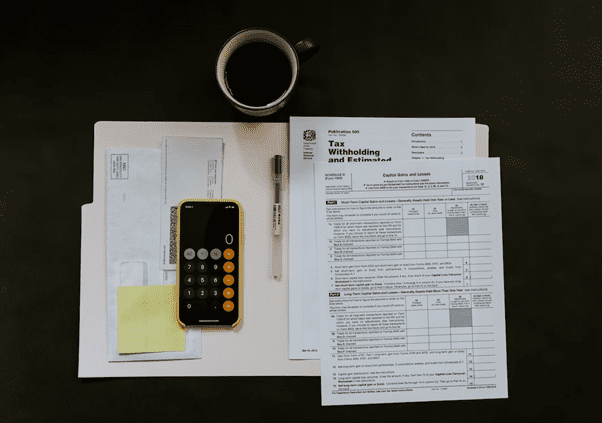Filing your taxes wrong can have dire consequences beyond what most believe. Instead of just minor numerical errors, more significant mistakes can lead to a headache with the IRS and result in hefty fines or fees. To understand what happens if you file incorrectly, we asked Mark Steber, Chief Tax Information Officer at Jackson Hewitt, about some of the worst transgressions that could occur on a 2023 tax form. Steber warns against incorrect information given to the IRS such as submitting a form under an outdated Social Security Number or providing inaccurate income or deduction numbers. Not only will this lead to an audit but it’s also done at your own peril and can be immensely costly, so research thoroughly and double-check all entries before submitting.
Honestly, you don’t want to know what happens if you file your taxes wrong. At the same time, in 2020 alone, 12 million declarations contained a mathematical error. While it is possible to amend the declaration, this is not something you would want to do due to the various difficulties involved in the process. A list of the most common mistakes will help you make sure you don’t make any of them.
Table of Contents
What Are The Biggest Tax Mistakes People Make?

Before you take on tax reporting, you should take care to ensure your safety. VPN fast download is possible from the app store, there is a pretty large selection. We offer to stay safe online with VeePN. We are talking about a VPN with a free trial version, which guarantees that none of your payment data will be stolen or intercepted by hackers. Do you want VPN download for free? Just use the link above and you will get many benefits when surfing the Internet from any of your devices. After completing the preparatory stage, you can proceed directly to filling out tax returns.
1. Not all Documents Collected
Filing taxes without the necessary documents is an unwise idea, as it may cause confusion and delay the time frame for filing. It is important to have all of the correct documents before even beginning to file your taxes. According to Maria Vazquez, a Certified Public Accountant (CPA), this is the most common mistake in tax filing. Any pertinent documents related to work incomes such as W-2s and 1099 forms should be collected before filing.
Furthermore, documents relating to other financial activities such as investments, health savings accounts, and retirement income must also be considered. Additionally, taxpayers should refer to the guidelines set by the IRS on what tax documents are needed in various circumstances when they are filing their taxes.
2. Mistakes In Names or Social Security Numbers
Filing taxes can be a daunting task, and in the process, everybody dreads making a mistake. Believe it or not, one of the common mistakes made when completing taxes is forgetting to enter your name and Social Security number exactly as they are spelled on your Social Security card. This might seem like something that would be easy to remember, but hundreds of thousands of taxpayers make this same mistake every year. Name changes also complicate matters – if you have recently changed your legal name but have not updated your details with the SSA, you may find your return is rejected.
A quick call to the SSA can solve this problem quickly and easily, allowing you to feel confident when submitting your tax return. In order not to miss anything during a conversation, you can turn on the recording of the conversation and then listen to it as many times as necessary. If you are calling online, make sure you have VPN on. You can check reviews of one of the best VPNs here. Call the tax agent after everything is ready.
3. Do Not File A Declaration
Even though it may seem like a distant fear, the US government has comprehensive tracking and monitoring of its citizens’ financial activity. They may not have revealed any issues with your personal wealth yet, but that doesn’t necessarily mean they won’t work in the future. The consequences of their retribution could be bad if your overseas investments are found to have broken American laws or regulations. In response, you could face an embarrassing passport revocation or denial of travel entry into the country – essentially banning you from your own homeland. Tax levies, liens, or even property seizure are other possibilities if violations warrant heavier prosecution. Always remember: America has a long arm and its reach stretches farther than initially thought.
4. Filing Your Tax Return Late
Waiting until the week prior to the tax filing deadline won’t be a good plan for those expecting a refund; this strategy is playing with fire. For those owed money by the IRS, it might not be so bad since several penalties may follow if taxes aren’t paid on time. Filing an extension can be done free of cost, however, you’re still missing out on that money if you file an extension and expect a return. So what should you do? File as soon as possible! Get your taxes in by April 15th if you know everything about them and don’t owe any money. And if not, file the extension and get everything squared away before October 18th.

5. Ignoring Foreign Assets
Those with foreign financial assets have a special obligation to report them each year in order to remain compliant with United States and sometimes international regulations. These reporting requirements are met through several distinct forms, such as FBAR, Form 3520, Form 5471, and Form 8938. It’s easy to overlook the paperwork in filing these forms, but failure to do so can result in hefty penalties. Fortunately, quick tax service providers such as Chartwell Tax may be able to aid in filing for amnesty which could reduce or eliminate these penalties depending on the circumstances.
Conclusion
Don’t let filing taxes be the source of your stress. With a little bit of planning and preparation, you should be able to breeze through tax season with ease. Remembering these five common mistakes can help ensure you file an accurate and timely return that won’t result in any penalty fees.

